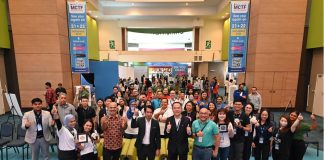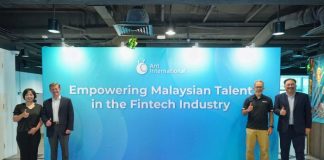It is no secret that Japan has a huge problem with it’s work culture. It has become normalised and cultural acceptable for workers to be overworked to extreme degrees. It is not uncommon for workers to stay back at the office for hours of overtime (sometimes unpaid), even if there is nothing to do.
This culture of overwork stems from the old idea of loyalty to the company which has it’s roots in post-war Japan. What has resulted is a city full of people that are contributing to a country-wide chronic sleep problem.
If you travel to Japan, especially on a weekday, the first thing you might notice is the bustling streets and public transportation systems, filled to the brim with suit clad workers, rushing to their next meeting. You also might notice that there are dozens of these same smartly dressed individuals, slowly nodding-off to sleep in cafes, fast-food restaurants, or on trains.
However, no one bats an eyelid to these public naps. Known as ‘inemuri’, drifting off in public has become synonymous with exhausted workers. The people have learned to tolerate such cases, as most people understand how rough the working life is in Japan. Unfortunately, merely tolerating such practices does not resolve the underlying issue.
OECD statistics, in its 2019 Gender Data Portal, reveal that Japan has the shortest average sleep in the world at 442 minutes per day a year – approximately 7.3 hours a night. A new law implemented earlier this year is designed to combat the culture of overwork by limiting legal overtime work to 45 hours a month and 360 hours a year. However, the results have varied as it is not easy to enforce this law.
As a result, companies are beginning to take things into their own hands, encouraging employees to go for a ‘hirune’, which literally translates as “lunchtime sleep”. At the headquarters of GMO Internet Group, a Tokyo-based company that deals in web hosting, unused conference rooms are filled with aromatic oils, reclining chairs, and beds, offering employees a space to catch some shut-eye.
“What we encourage here is not inemuri,” says Sae Takahashi, the group’s chief spokesperson. “With hirune, one is consciously making an effort to rest within a short space of time. This way, we think they can effectively switch between business and break times, creating a better working environment.”
The concept of “hirune” is similar to that of the European siesta. GMO’s own facilities are available to workers everyday from 12.30pm onwards for an hour. “Some use the room as part of their daily routine to help them rejuvenate for the afternoon. For those with children, it helps them catch up on sleep that they may otherwise miss out on at home,” said Takahashi.
Takanori Kobayashi, whose sleep schedule was so wrecked by his former job as a businessman that he quit. Then he founded NeuroSpace, a start-up with a mission to implement sleeping programmes for companies.
When I graduated and started my career as a salaryman, I entered a terrible cycle. I couldn’t stop thinking about the pressures from my older colleagues when going to bed, which meant I couldn’t sleep much. The next day I would worry about my lack of sleep on top of the stress of work,” said Kobayashi.
“The factors affecting the stress kept multiplying, to the point where it was affecting my ability to perform well on the job. The lack of colleagues myself and others could turn to for support was evident,” he continued.
Since 2014, Kobayashi’s NeuroSpace has worked with more than 70 companies in Japan in an advisory role on how to implement sleeping programmes to boost employee productivity. Despite a slow start, about half of their clients have come through since the start of 2019.
Although companies are now legally obliged to limit overtime hours, NeuroSpace’s programmes include monitoring sleeping habits as part of a wider change of working culture that meets demand for a better work-life balance.
Japan still has a long way to go in undoing the ingrained culture of overwork. Most workers see it as the norm, and the idea of taking things easier is what is considered alien to them. Despite this, companies like NeuroSpace and GMO are taking the first steps in ensuring that Japan’s workforce stays healthy and productive.





































